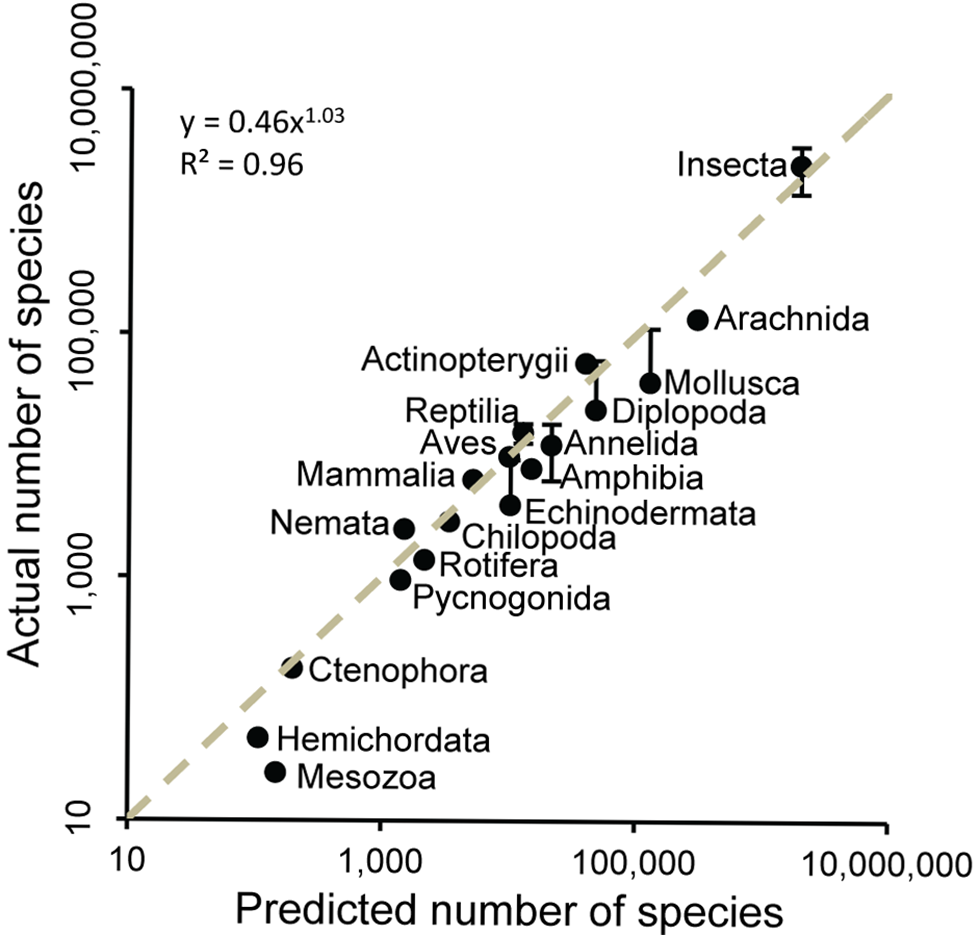Limitations
This not lists some limitations on human knowledge.
Examples
Human activity is a major threat to the planet’s biodiversity. However, we do not know the exact number of species that exist on Earth, or how many of them are endangered or extinct.
17% of IUCN database are 'data deficient', 7699 species. They are likely even more threatened than the ones that are described better.
Borgelt, Jan, Martin Dorber, Marthe Alnes Høiberg, and Francesca Verones. ‘More Than Half of Data Deficient Species Predicted to Be Threatened by Extinction’. Communications Biology 5, no. 1 (2022): 1–9. https://doi.org/10/gqk866.

∼8.7 million (±1.3 million SE) species globally, of which ∼2.2 million (±0.18 million SE) are marine.
Some 86% of the species on Earth, and 91% in the ocean, still await description.
Mora, Camilo, Derek P. Tittensor, Sina Adl, Alastair G. B. Simpson, and Boris Worm. ‘How Many Species Are There on Earth and in the Ocean?’ PLOS Biology 9, no. 8 (2011): e1001127. https://doi.org/10/fpr4z8.
Human impact on ecosystems is often irreversible and unpredictable. For example, introducing a non-native species into an ecosystem can have cascading effects on the native species, such as competition, predation, disease, or hybridization. However, we do not have enough data or models to accurately predict the outcomes of such interventions.
Human-induced climate change is affecting the distribution and abundance of many species and ecosystems, as well as their ability to provide ecosystem services for humans. However, we do not have a comprehensive understanding of how different species and ecosystems will respond to the changing climate, or how they will interact with each other under new conditions.
Human knowledge about other species and ecosystems is limited by the availability and accessibility of data, the methods and tools for collecting and analysing data, the biases and assumptions of researchers, and the ethical and legal issues of studying nature. Moreover, human knowledge is often influenced by cultural and social values, which may differ from those of other humans or other species. Cf. Human Bias
Background
Code, Lorraine. ‘Thinking Ecologically, Knowing Responsibly’. Environmental Philosophy 17, no. 1 (2020): 19–37. https://doi.org/10/gg7ft3.
Code, Lorraine. Ecological Thinking: The Politics of Epistemic Location. Oxford: Oxford University Press, 2006.
Code, Lorraine. Epistemic Responsibility. 1987. Reprint, Albany: State University of New York Press, 2020.